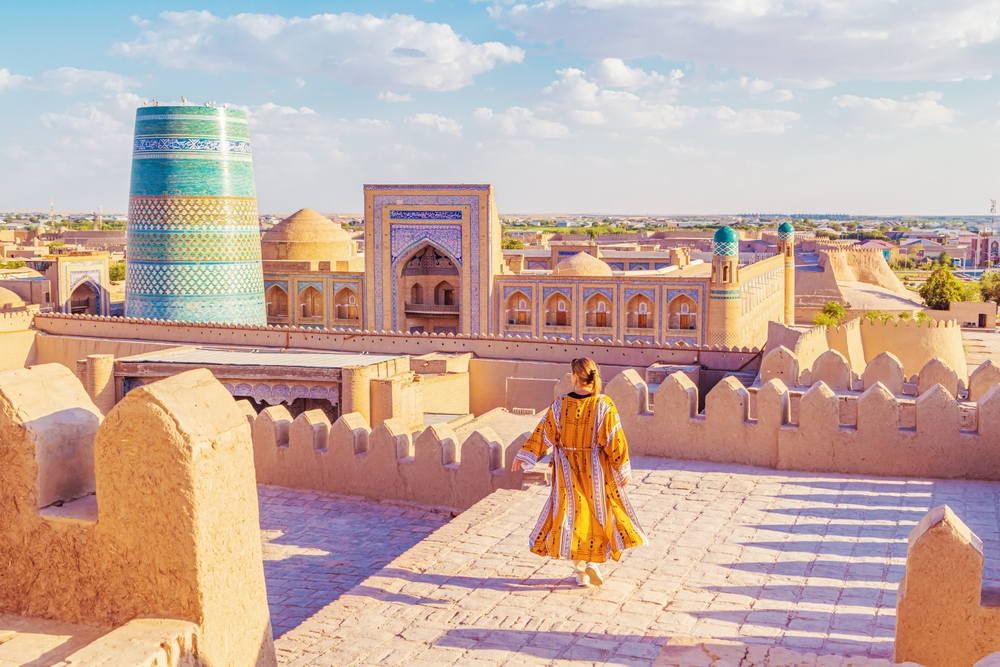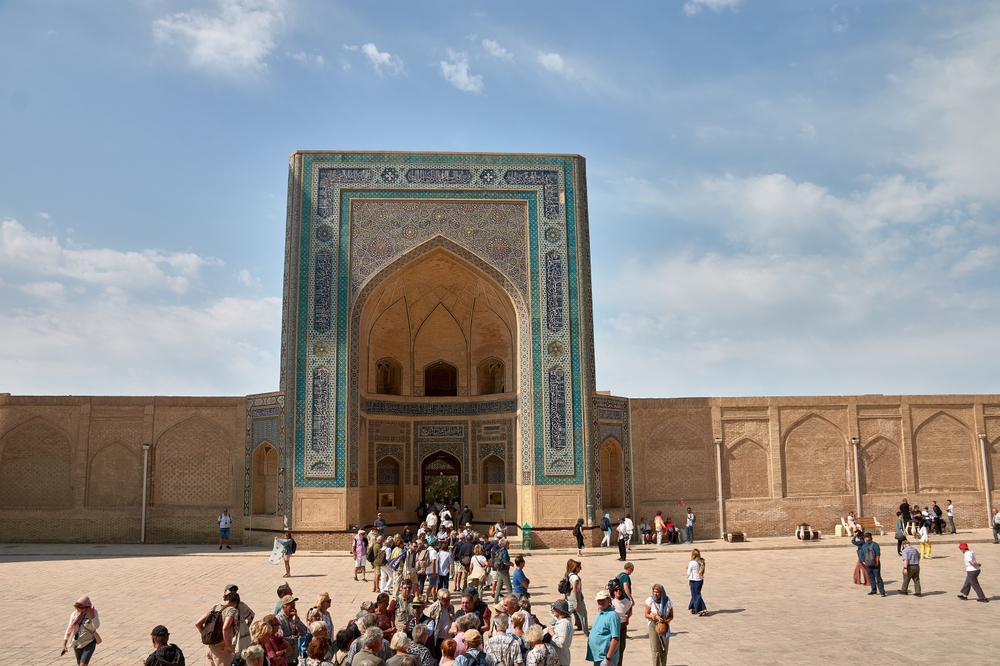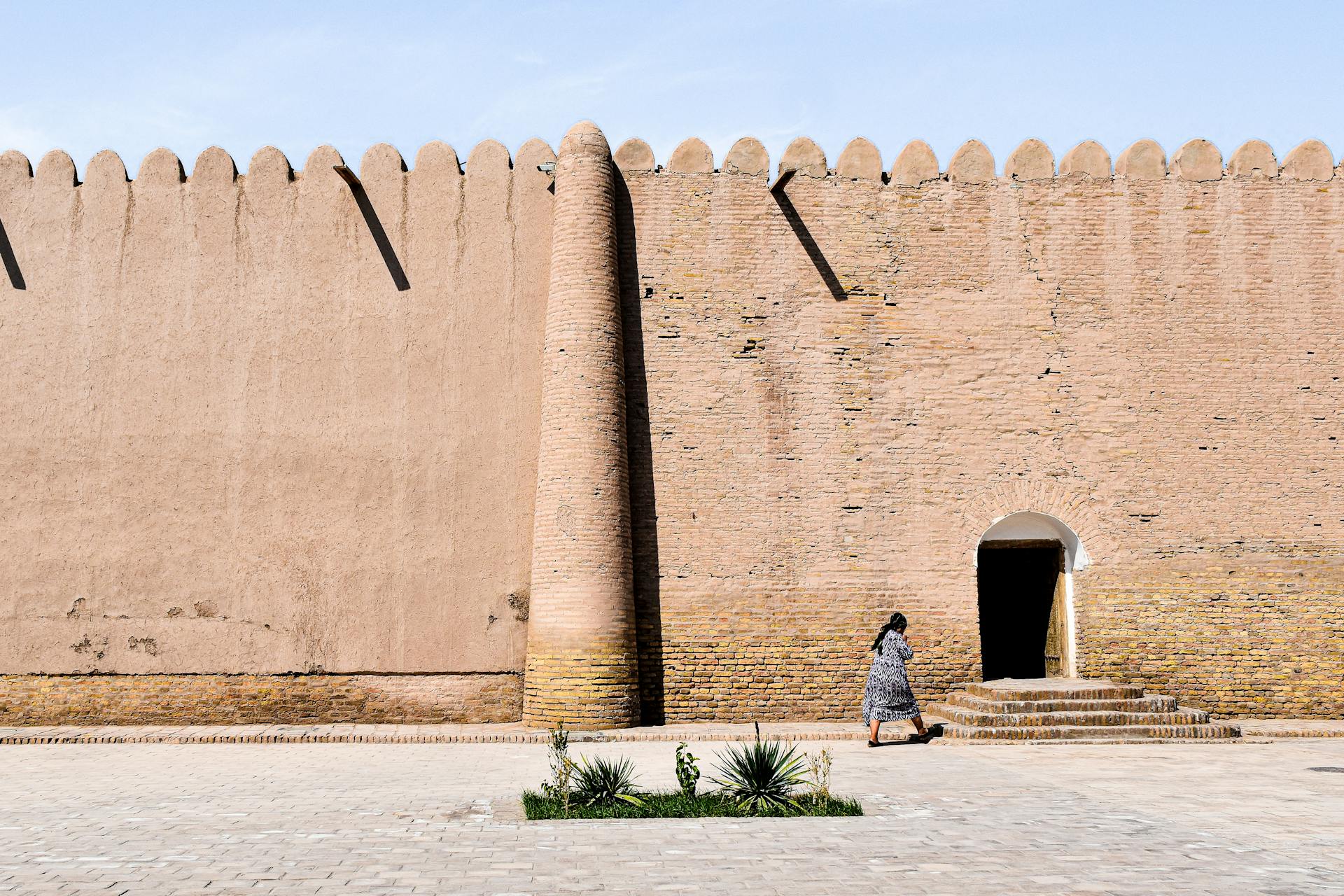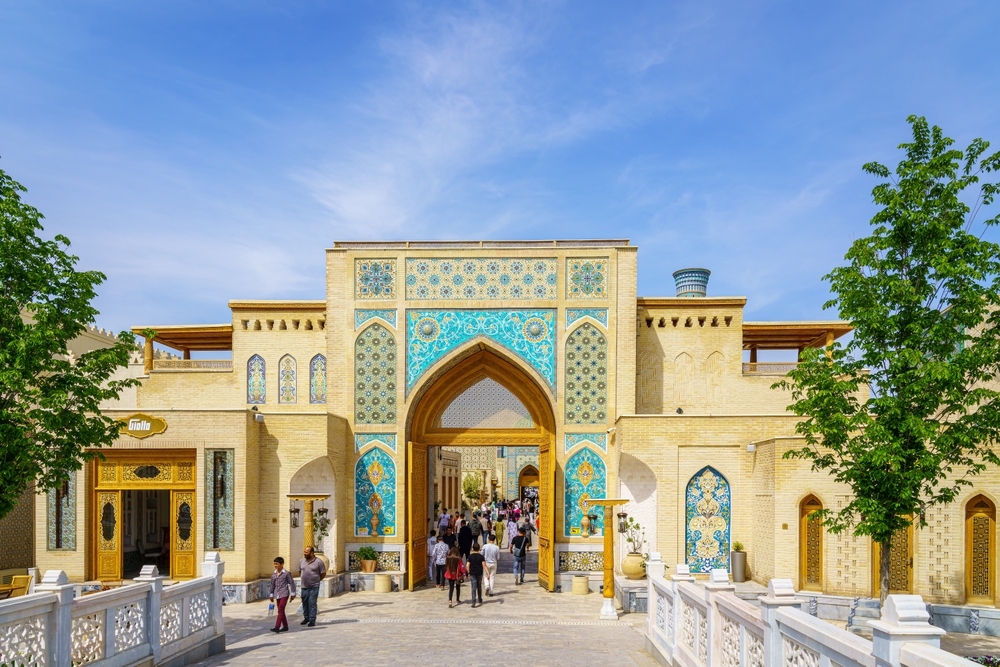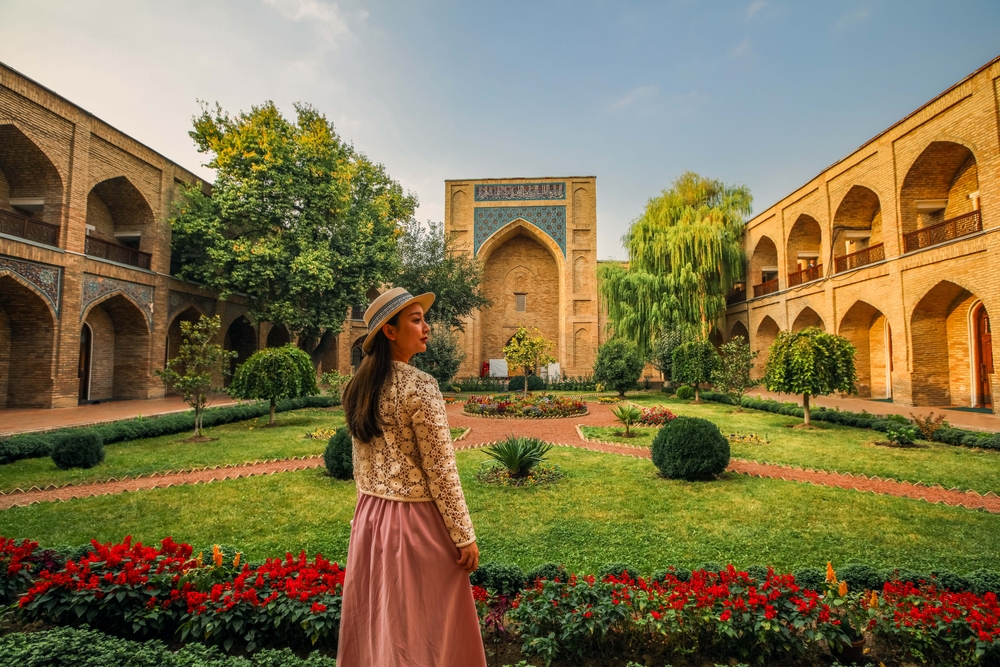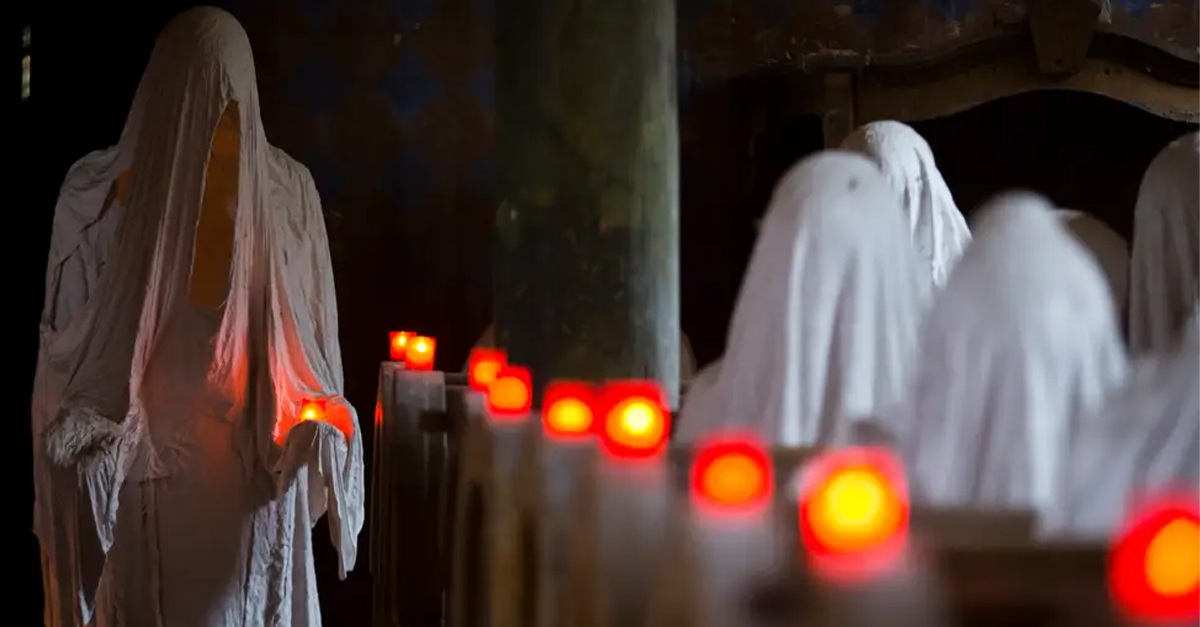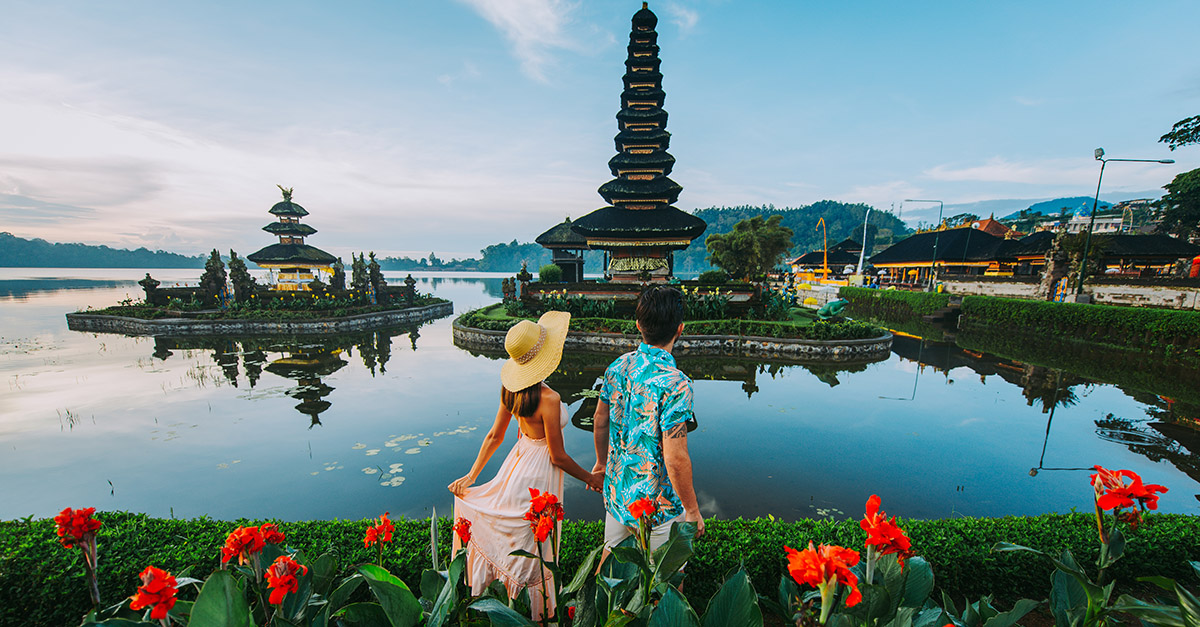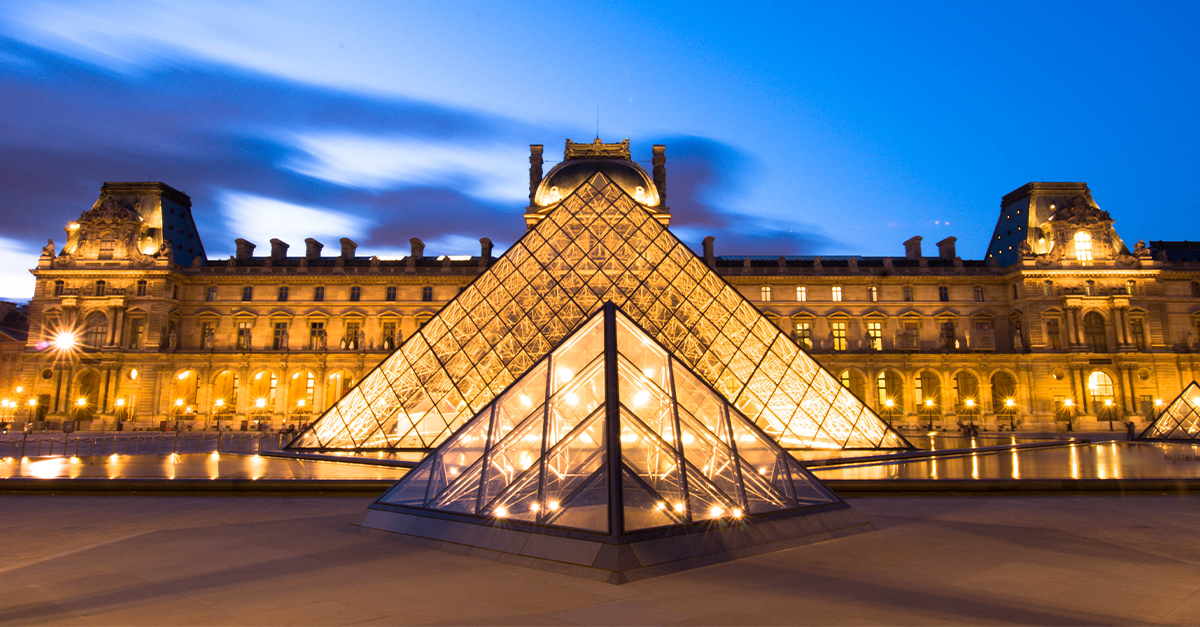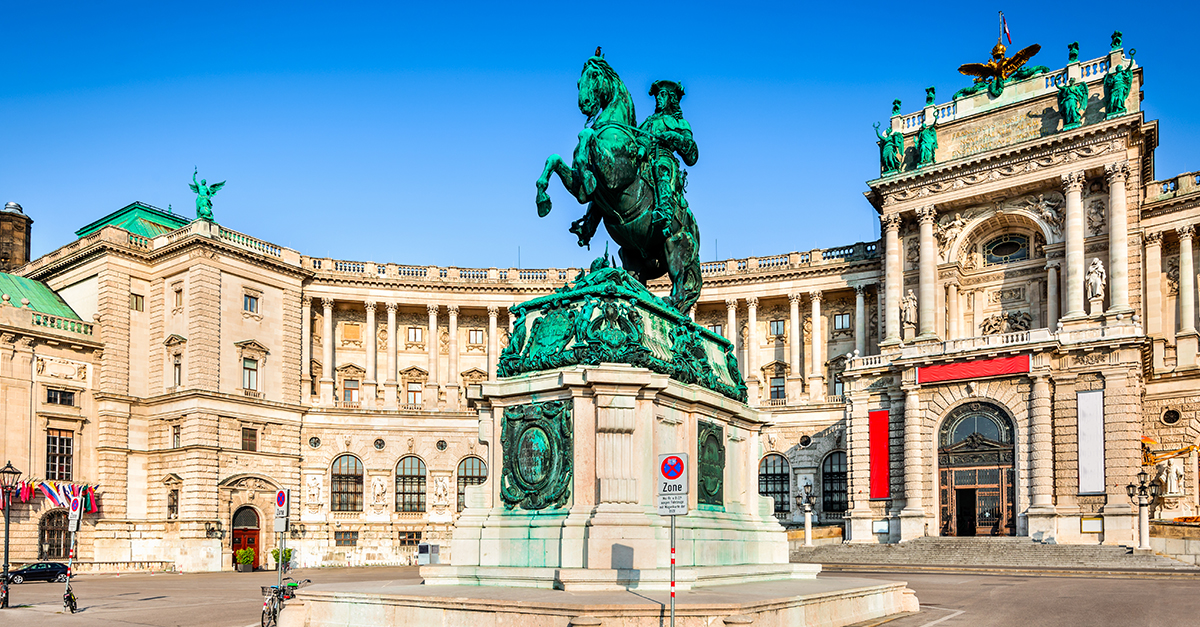Uzbekistan's Tourism Boom That Nobody Asked For
The Central Asian nation of Uzbekistan is experiencing a massive tourism boom following a huge change in government policy that allows more tourists to come into the country and more goods to be exported. These policy changes came into effect in mid-2023, but after less than a year, some Uzbeks and the Uzbekistan government regret those changes. Let's find out why.
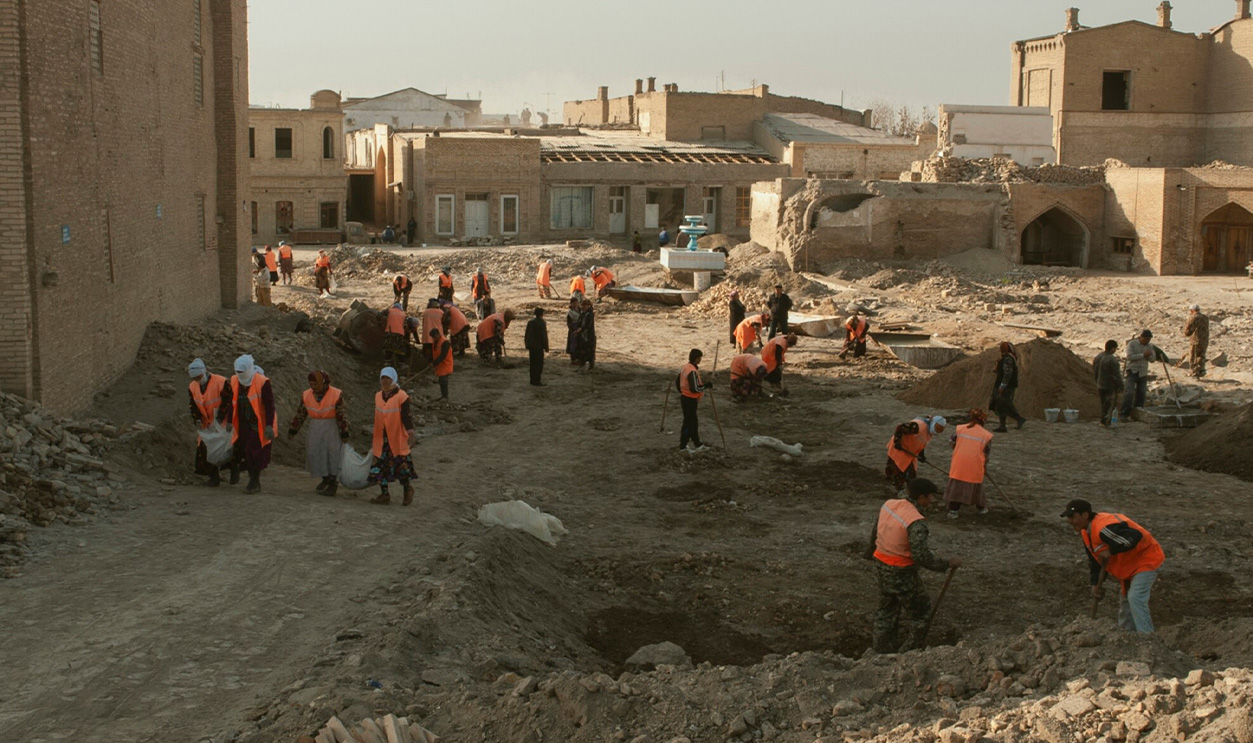
A History Of Uzbekistan
Uzbekistan's history stretches back millennia; as a landlocked country in Central Asia, it has seen empires from the Buddhists to the Abbasid Caliphate of Islam to the Mongols and, finally, the Russians. In 1929, Uzbekistan became a Soviet socialist republic—a status that lasted until December 1991, when Uzbekistan declared itself an independent country following a 98.2% favorable vote in a referendum.
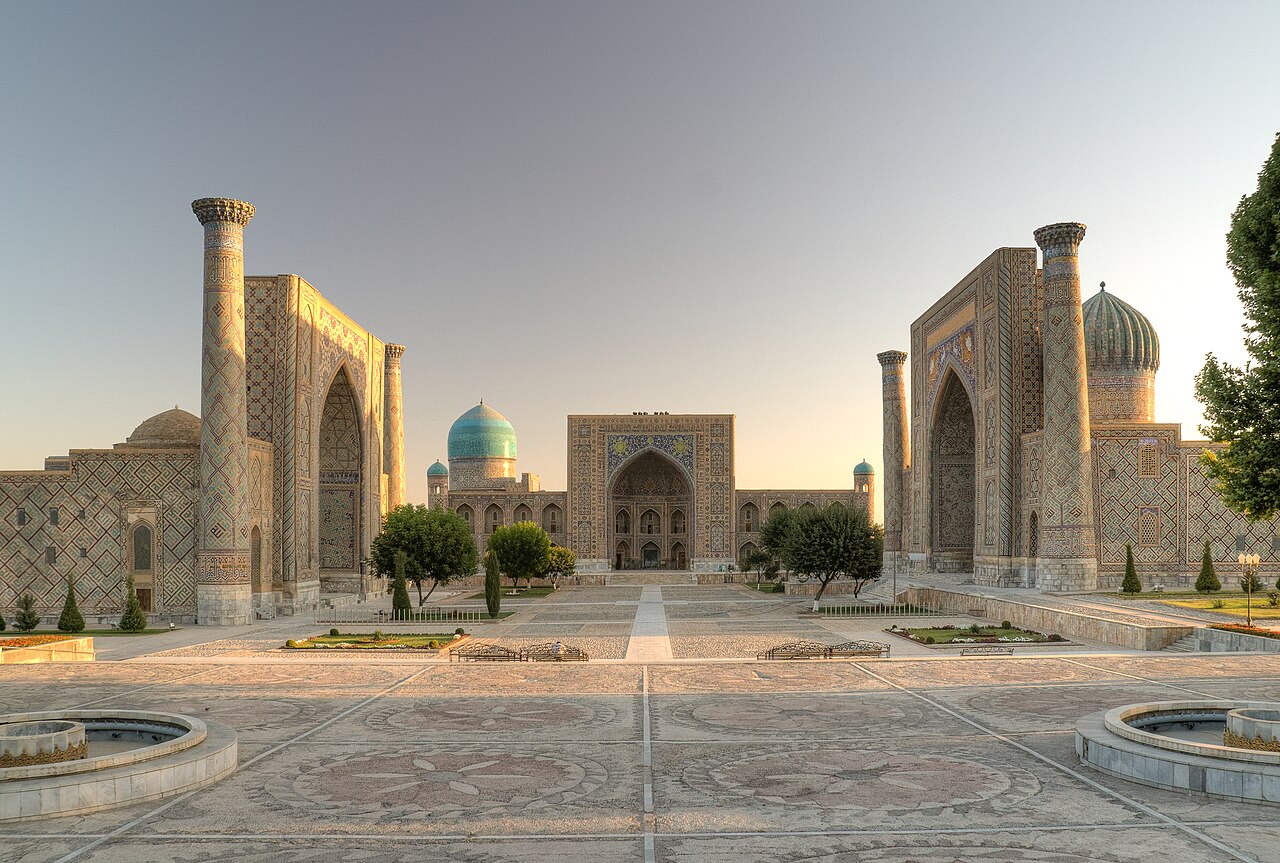 Ekrem Canli, CC BY-SA 3.0, Wikimedia Commons
Ekrem Canli, CC BY-SA 3.0, Wikimedia Commons
Modern Uzbekistan
There have been many human rights abuses by the modern government of Uzbekistan, including a 2022 constitutional amendment that would have denied an autonomous region the right to vote for secession from the country, the jailing of "dissidents" in the lead-up to elections, and a general environment of fear stemming from the President of Uzbekistan, Shavkat Mirziyoyev.
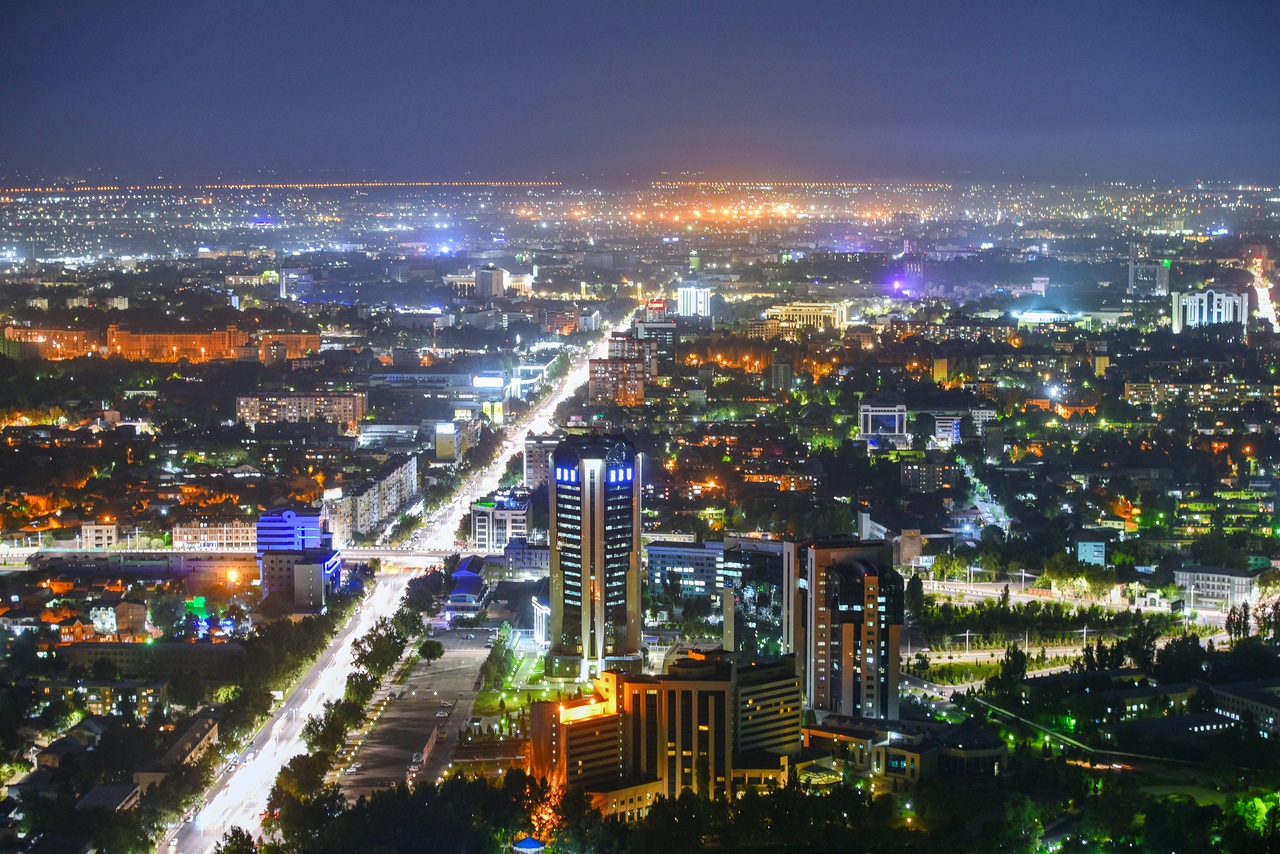 Guidecity, CC BY-SA 4.0, Wikimedia Commons
Guidecity, CC BY-SA 4.0, Wikimedia Commons
The State Of Tourism In Uzbekistan
Tourism in Uzbekistan experienced its best-ever year in 2019, when 6.7 million people visited the small country. The country's second-best year was 2023, when 6.6 million people visited the landlocked nation, partly as a result of changes in government policy that made traveling to the region easier.
Capitalizing On The Silk Road
Uzbekistan's rich history comes from being part of The Silk Road—a broad network of trade routes that connected Europe to China: a distance of about 4,000 miles. Operating from the 2nd century BCE to the 15th century, travelers and traders commuted along this route, through modern-day Uzbekistan, bringing their goods, religions, languages, and lives with them.
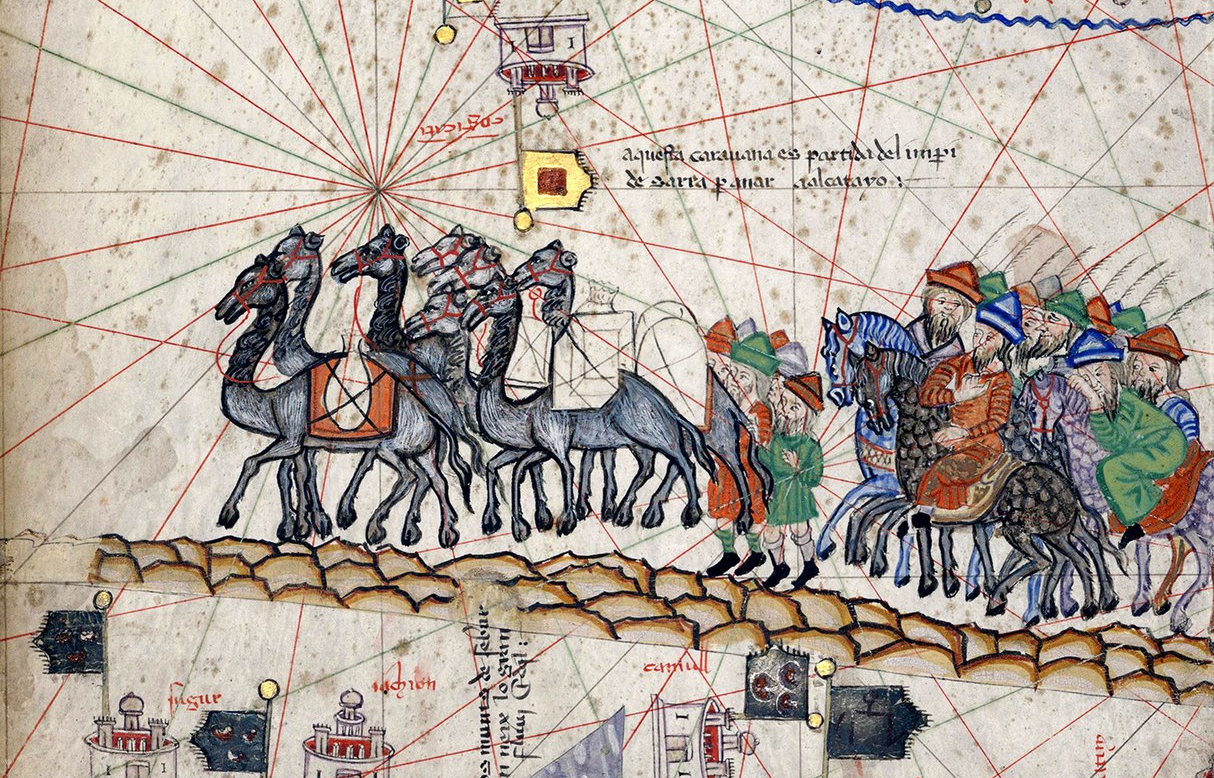 Cresques Abraham, Wikimedia Commons
Cresques Abraham, Wikimedia Commons
Uzbekistan's Tourists By Country
Before we dive into what changes were made by the Uzbek government, let's first understand where Uzbekistan's tourism is coming from. For starters, most Uzbekistan tourism comes from their neighboring countries, with this number being around 1.5 million in 2022. Next, Russians visit Uzbekistan the most, with 567,000 visitors in 2022. Germans were the highest number of visitors from any EU country, comprising over 17,000 visitors.
What Were These Changes?
Since taking power in 2016 from hardline President Islam Karimov, Shavkat Mirziyoyev implemented tourism industry changes such as abolishing visa requirements for visitors from over 90 countries, scrapping rules requiring foreign visitors to report their whereabouts to authorities, and entered into a partnership with Singapore to develop their Tashkent International Airport.
 president.uz, CC BY-SA 4.0, Wikimedia Commons
president.uz, CC BY-SA 4.0, Wikimedia Commons
Attracting Foreign Investment
Another move has been to invest tens of millions of dollars in attracting foreign investment. It's worked, too, with hotel companies like Hyatt, Hilton and Marriott establishing hotels in Tashkent, and airlines like Turkish Airlines and Flydubai now allowed to operate in the country. The government has also created new tour guide courses available to ordinary Uzbeks.
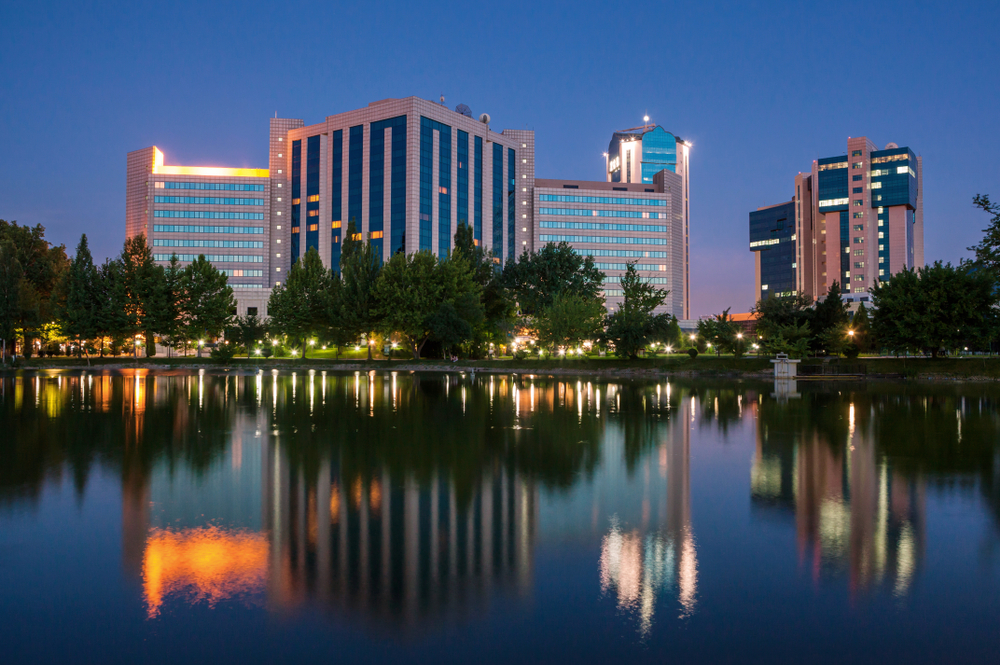 Vladimir Goncharenko, Shutterstock
Vladimir Goncharenko, Shutterstock
A Cohesive Strategy Is Still Lacking
While Prime Minister Mirziyoyev has made some cogent strides towards opening up the country for tourism, according to Michael Shamshidov, co-founder of the Samarkand Tourism Forum in Tashkent, "Uzbekistan is still lacking one big strategy". For starters, there aren't enough hotels: just 1,193 accommodations with 51 starred hotels and 72,000 beds, according to the country's tourism figures.
Language Issues Are Most Common Barrier
As many foreign tourists to Uzbekistan (those not from the "Stans" don't speak Uzbek or Russian, the country's primary languages), communication with officials, street vendors, and salespeople requires an English-speaking guide. Similarly, road signs and other signs aren't written in English, thus tourists often can't venture off alone for fear of getting lost.
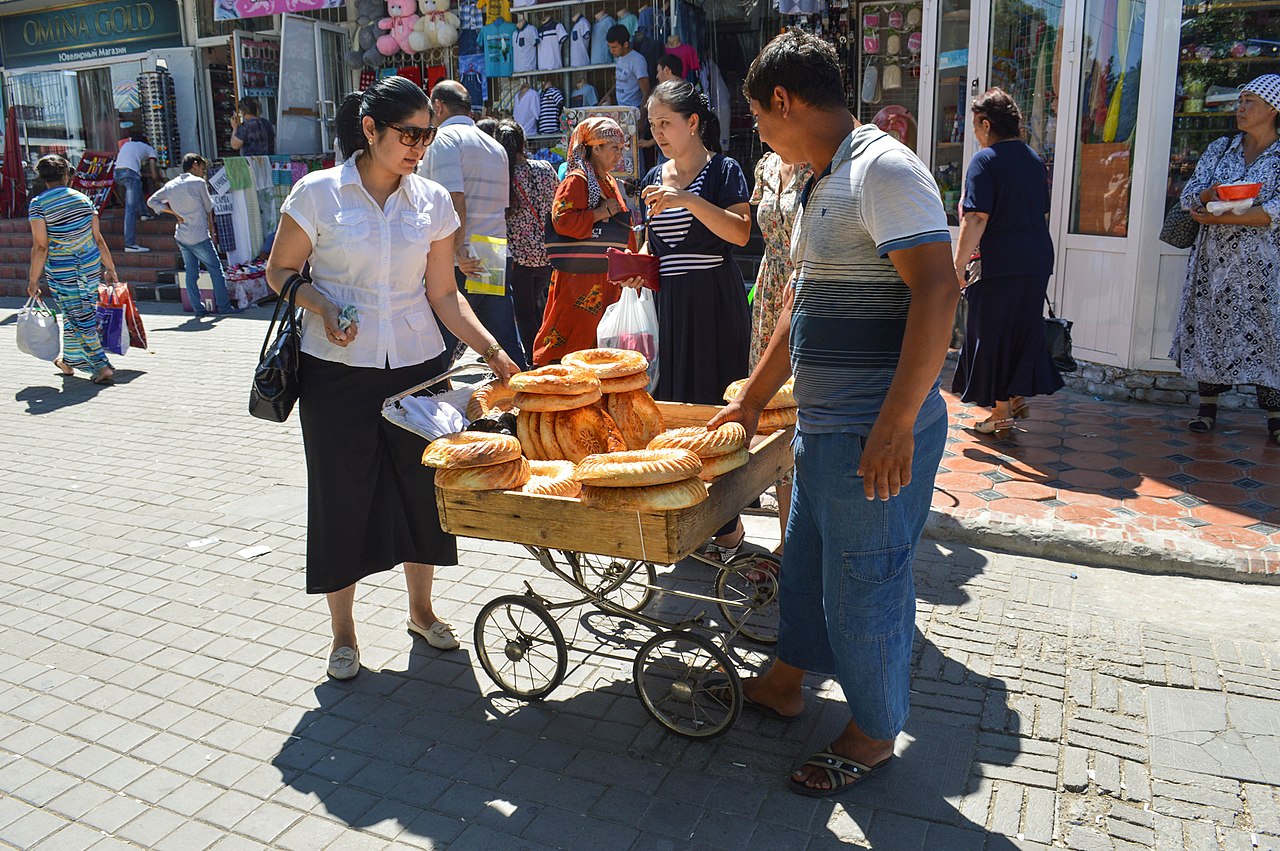 Francisco Anzola, CC BY 3.0, Wikimedia Commons
Francisco Anzola, CC BY 3.0, Wikimedia Commons
The Dark Side Of The Tourism Boom
While the government of Uzbekistan is pumping money and people into the tourism industry, it's not all sunshine and rainbows. There's a darker side to the tourism boom that has cultural and heritage preservation experts concerned.
The Knocking Down Of Historic Cities For Hotels
Of course, when trying to build up your tourism industry, it's a good idea to build hotels to encourage tourists to stay multiple days. But in the city of Khiva, which is surrounded by mud forts, the historic center is being turned into a tourist trap with mud and straw buildings being knocked down for hotels.
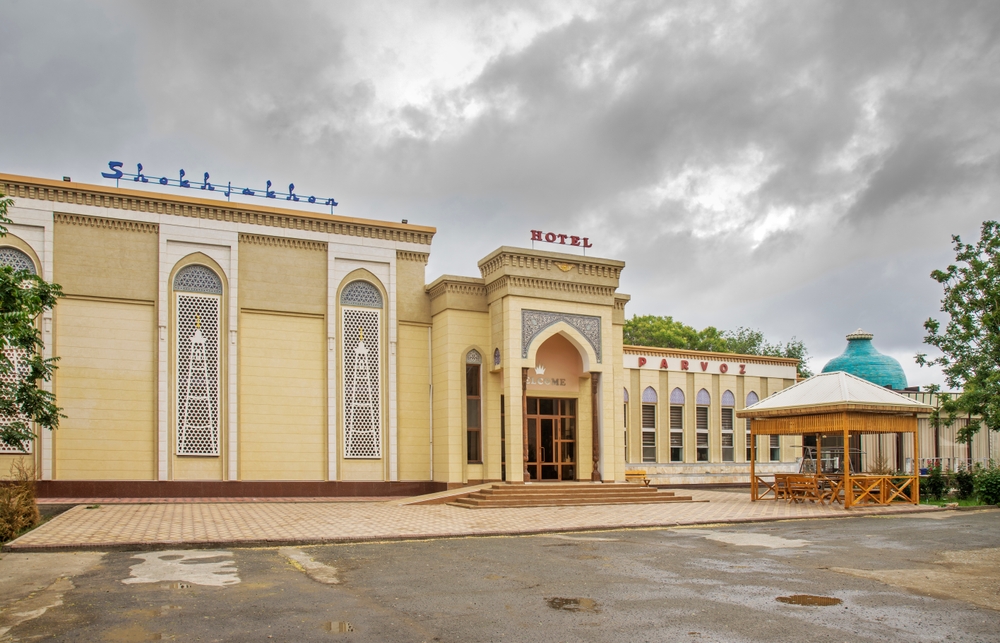 Shevchenko Andrey, Shutterstock
Shevchenko Andrey, Shutterstock
Silk Road Samarkand: Uzbekistan's Disneyland
This new tourist attraction in Samarkand (from James Elroy Flecker's famous poem), is a resort complete with a theme park, guided fishing tours, spas, and a musical fountain that plays tunes while lit water shoots from the fountain's spouts. It's a Disney-esque resort that's been called soulless and sanitized.
Applying The Silk Road History To Everything
While nations capitalizing on their history to garner more tourism is nothing new and happens all over the world, Uzbekistan is "applying the concept of Silk Road to everything", according to Svetlana Gorshenina, a researcher at the Uzbek heritage protection association. Silk Road shops, Silk Road tours, Silk Road restaurants. Gorshenina says it's "become our only selling point".
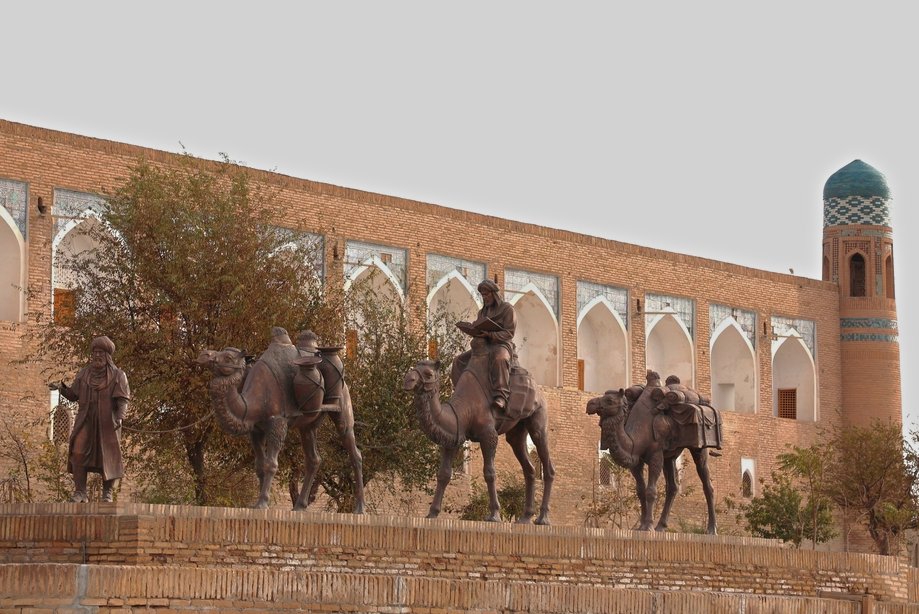 Andrey-Filippov.ru, Shutterstock
Andrey-Filippov.ru, Shutterstock
Emptying City Centers Of Their Inhabitants
Gorshenina also stated that the Uzbek government has "emptied city centers of their inhabitants" to make way for new buildings that feed the government's tourism initiative. It seems, to Gorshenina, that the government of Uzbekistan is intent on creating a version of their cities that are tourist-only, where the entire infrastructure is built around tourism, leaving little to nothing left for the locals.
 Bobyrr, CC BY-SA 4.0, Wikimedia Commons
Bobyrr, CC BY-SA 4.0, Wikimedia Commons
Enter Engineering's Plan For Bukhara
Bukhara, Uzbekistan's seventh-largest city (population: 250,000), is undergoing a transformation, too, with an engineering firm called Enter Engineering proposing the building of a cultural center, cafes, and recreating old Uzbek buildings like teahouses, shopping centers, and more. The project is named "Eternal Bukhara", but has been described as an "ethnographic park".
 Pixoos, CC BY-SA 4.0, Wikimedia Commons
Pixoos, CC BY-SA 4.0, Wikimedia Commons
Demolishing The Sports Stadium For Tourism?
In 2024, the historic district of Bukhara saw it's only sports stadium destroyed to make way for tourism as part of Enter Engineering's planned rebuild of Bukhara. An unnamed architect in a BBC report stated, "It should not become a town solely for tourists, but for its residents as well. It risks becoming a Venice in the desert".
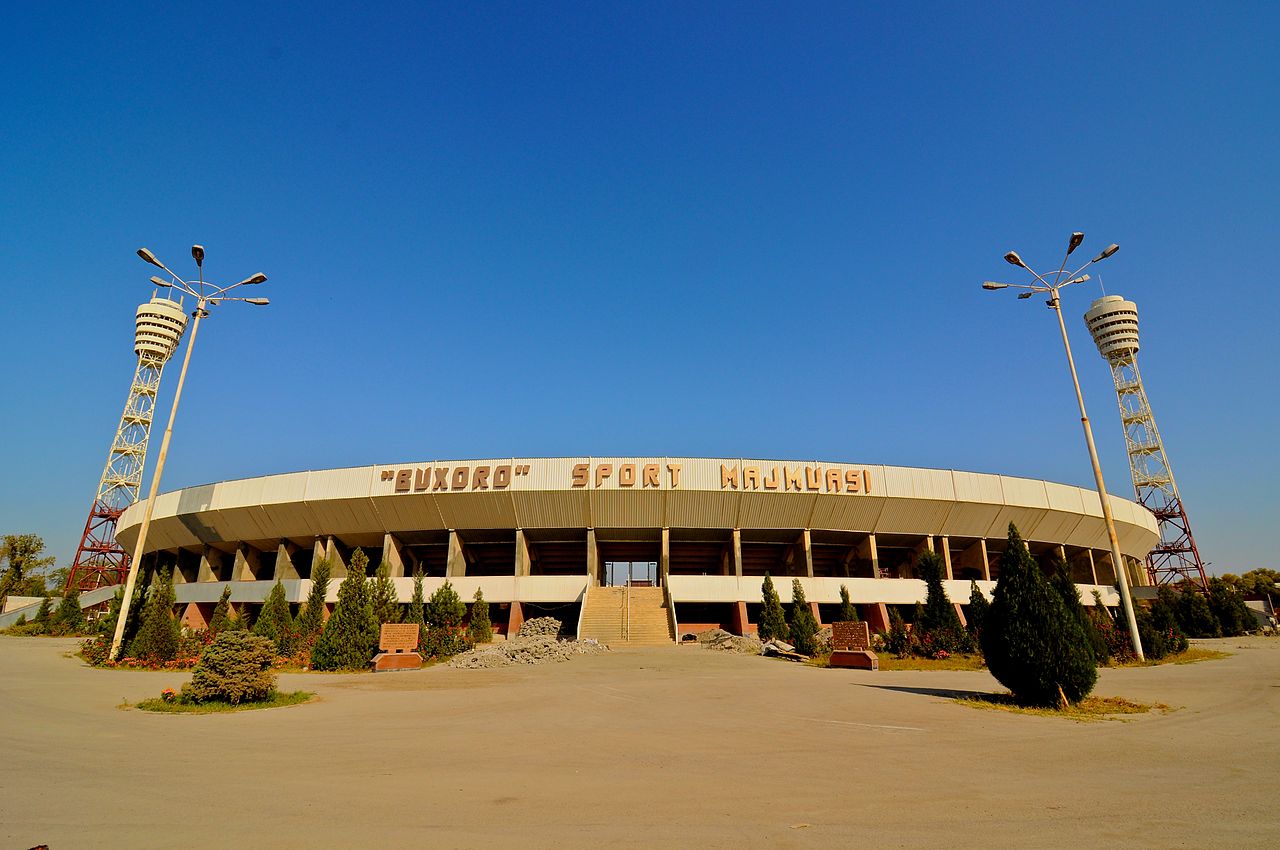 MY2200, CC BY-SA 2.0, Wikimedia Commons
MY2200, CC BY-SA 2.0, Wikimedia Commons
A Possible Roadblock To Transformation?
The United Nations Educational, Scientific And Cultural Organization (UNESCO) does have a say in what happens in Bukhara, as the city is designated as a UNESCO World Heritage Site, because of its connected history to the Silk Road. "Eternal Bukhara" falls within the buffer zone of UNESCO, meaning that the agency will need to be consulted before any changes are made.
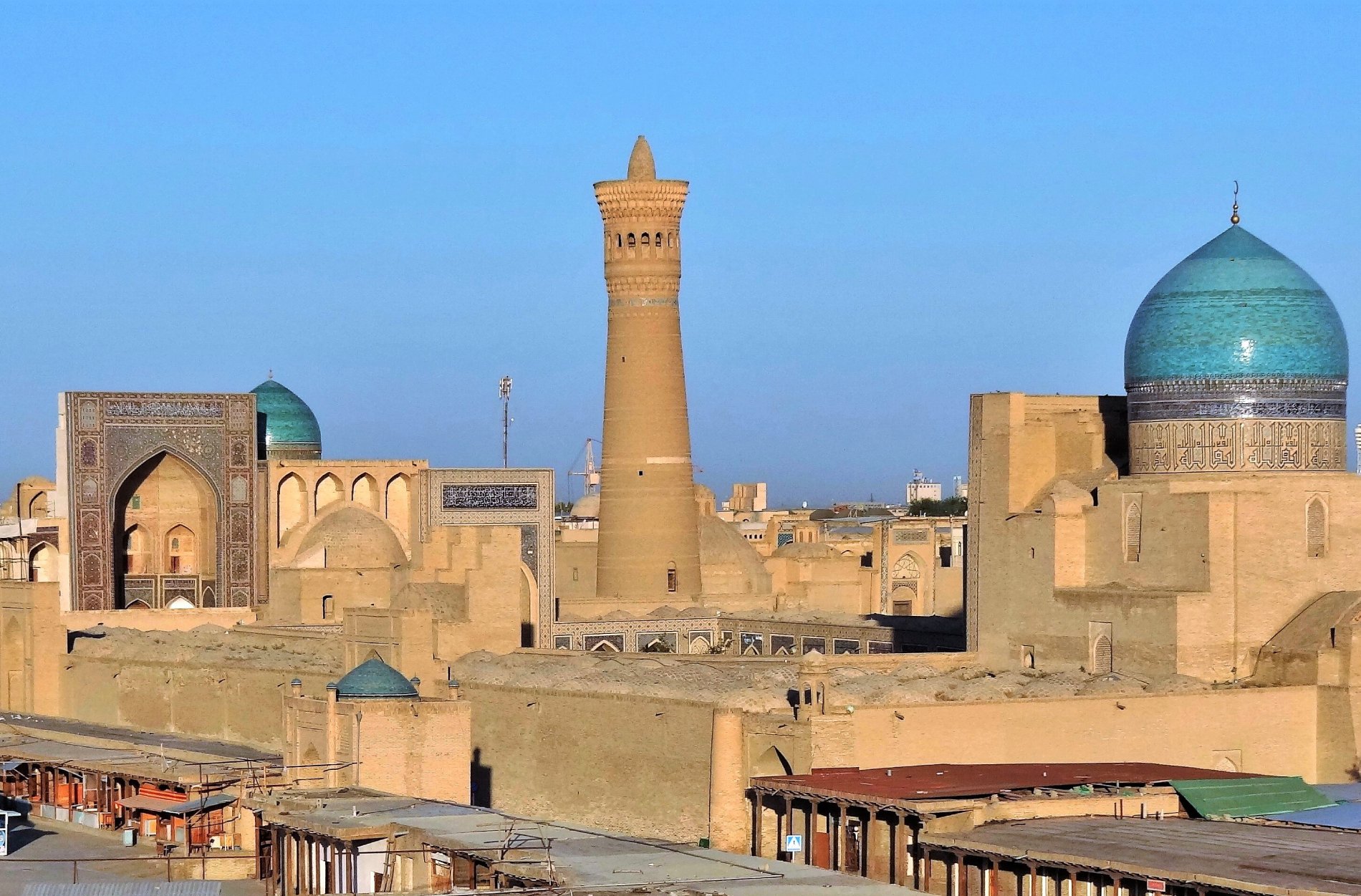 Adam Jones, CC BY-SA 4.0, Wikimedia Commons
Adam Jones, CC BY-SA 4.0, Wikimedia Commons
UNESCO's Response
The agency has stated: " We hope that the authorities will comply with their commitments to the World Heritage Convention and that they will not carry out any demolition/construction project without the prior assessment of the World Heritage Committee in July 2025". This was met with ire by the unnamed architect who spoke with BBC: "Unesco is toothless, without principles. What have they done for Central Asia, for Uzbekistan?"
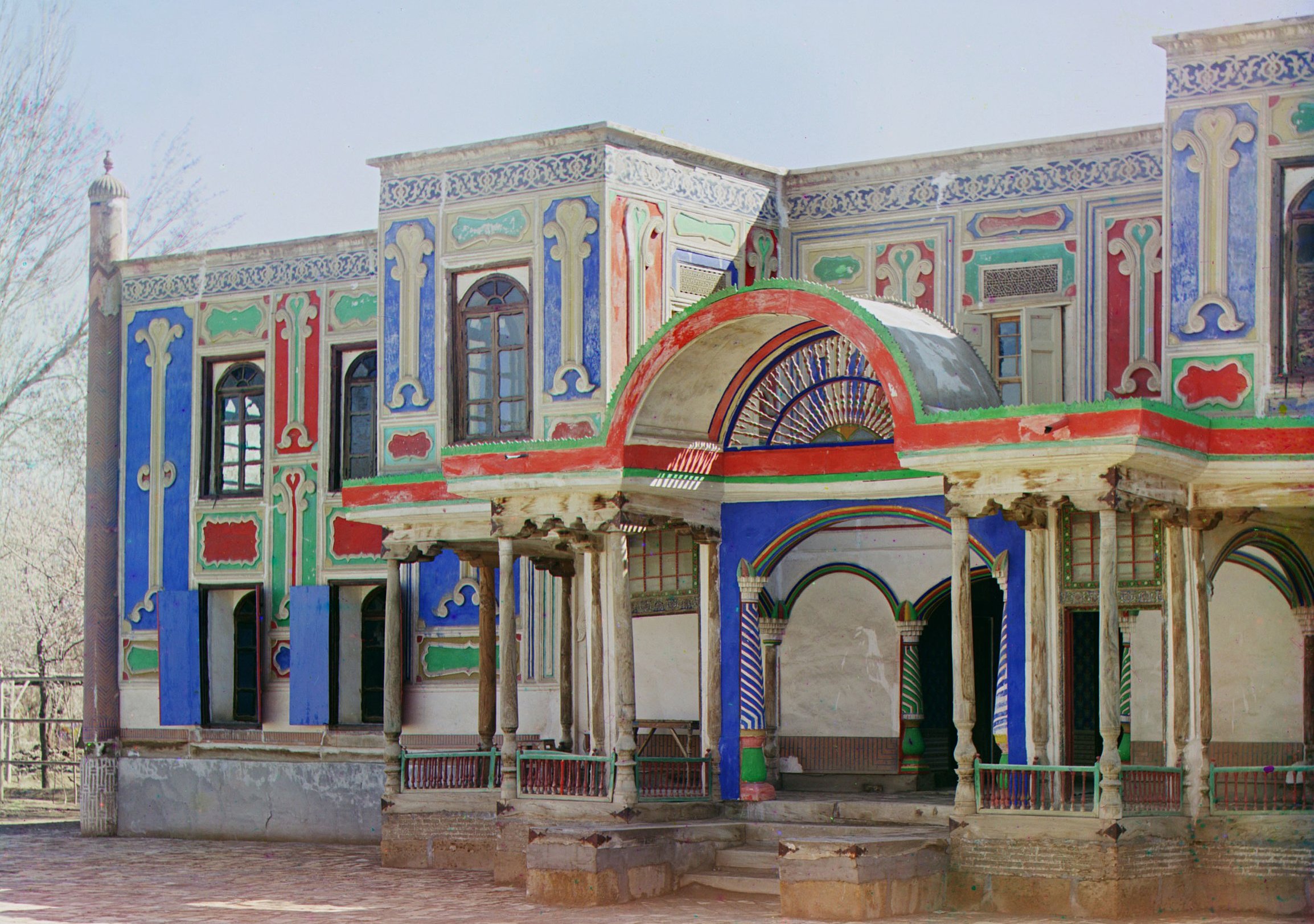 Sergei Prokudin-Gorskii, Wikimedia Commons
Sergei Prokudin-Gorskii, Wikimedia Commons
Replacing Local With Mass-Produced Imports
In Bukhara in particular, notable changes, including the importing of mass-produced goods that replaced the one cherished Uzbek silk, give some indication of where the country's priorities lie—and how it hopes to appeal to tourists seeking cheaply-made goods, rather than handcrafted works of art.
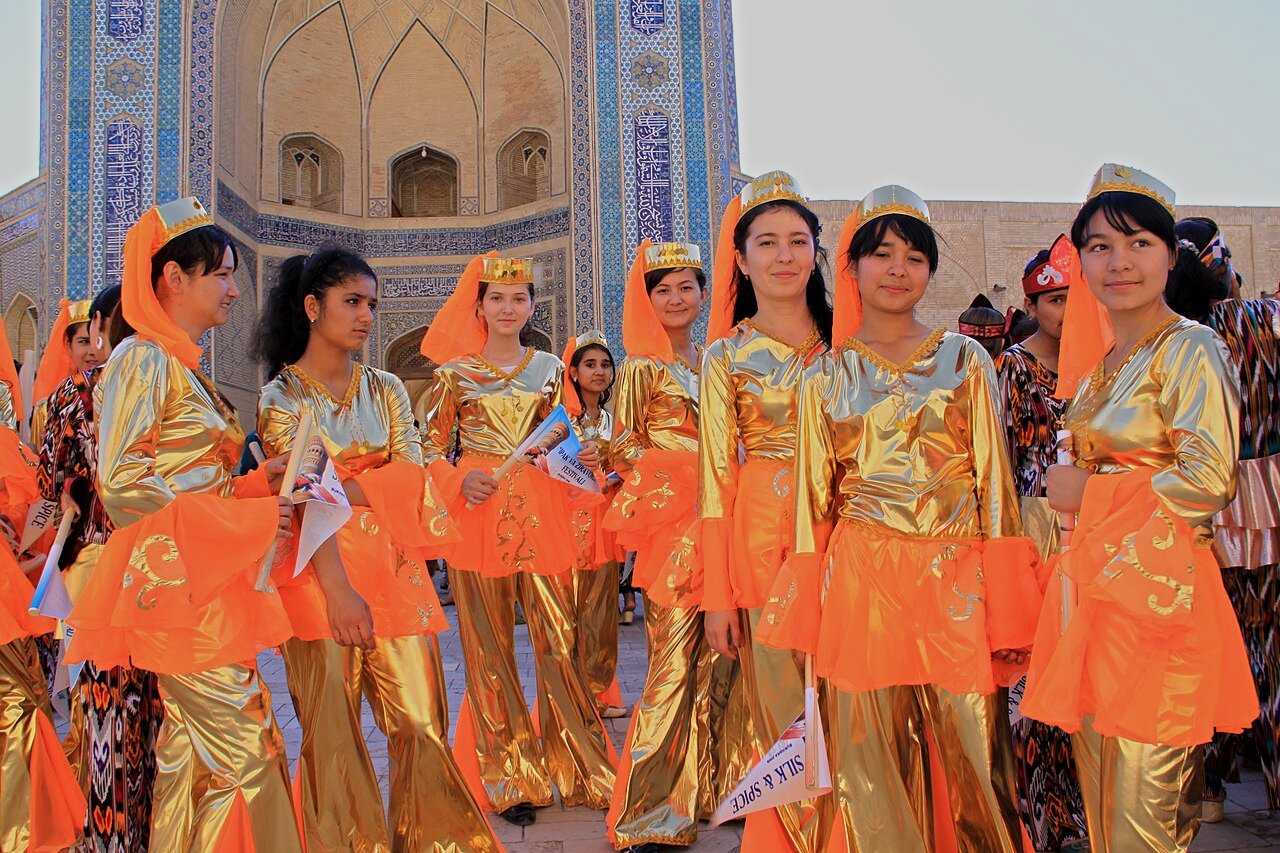 http://veton.picq.fr, CC BY-SA 3.0, Wikimedia Commons
http://veton.picq.fr, CC BY-SA 3.0, Wikimedia Commons
Will Uzbekistan's Tourism Boom Hold?
While increased tourism numbers is certainly a huge reason for optimism among Uzbeks, many are weary that all of these tourism-related projects and the finances allocated for them could be put to better use. And they're scared that the "Golden Road To Samarkand", as James Elroy Flecker envisaged, will soon be lined with tourist-trap giftshops and trinkets unbecoming a country of such rich history as Uzbekistan.
You May Also Like:
Haunting Photos From Chernobyl, Nearly 40 Years Later
One Of The Earliest Known Alphabets Discovered In Syria
Sources:


